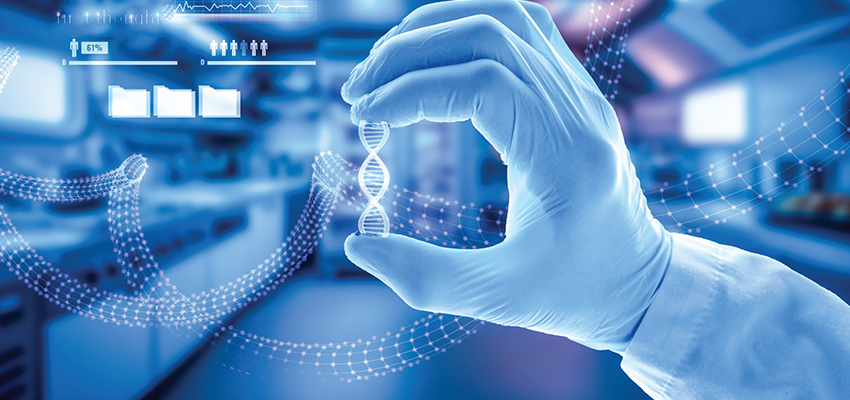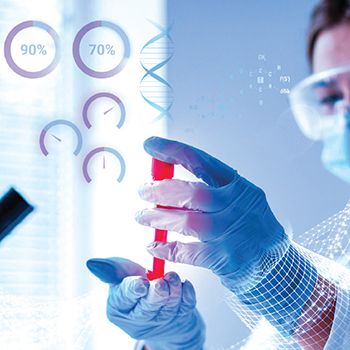How will Artificial Intelligence affect our lives in the future?

As a curious tech enthusiast, a few days back, I was reading about the buzzwords of this century, Artificial Intelligence (AI) and Machine Learning (ML), it was completely fascinating how these technologies are changing and are likely to change the coming future of human life on earth. That is the reason, I have decided to dedicate this article on Artificial Intelligence Future, so together we can explore the possibilities of a new era with machine learning and artificial intelligence
Artificial Intelligence Future –less artificial, more intelligent
“[AI] is going to change the world more than anything in the history of mankind. More than electricity.”— AI oracle and venture capitalist Dr. Kai-Fu Lee, 2018
From driverless cars to voice automation in homes, artificial intelligence has progressed rapidly and is no longer just a concept from sci-fi movies and books. Artificial Intelligence Future is arriving faster than the predictions shown in the long hailed film “Minority Report” set in 2054. According to a research by scientists at the University of Oxford, Artificial Intelligence will be better than humans at translating languages by 2024, writing school essays by 2026, selling goods by 2031, write a bestselling book by 2049 and conducting surgeries by 2053. In the next few years, AI will become an integral part of our lives reaching the level of super-intelligent machines to exceed human intellectual competencies.
- Imagine opening the door of your hotel room without a key, but rather through facial recognition tools. Your face will become your identity making everyday transactions easier and efficient
- Get ready to have your products delivered by smaller drones straight to your doorstep within minutes of placing an order.
- AI-based virtual assistants will place human- like calls to book an appointment at, say, your neighbourhood salon understanding the nuance and the context of the conversation.
- Prepare yourself to be operated by a Robot Surgeon. In the next few years, a physical surgeon will only be a spectator as a robot actually performs the surgery and helps patients better understand their care options.
- These are just a few examples of how Artificial Intelligence will change the future. Artificial Intelligence Future advancements seem like a long way off, but they will be here sooner than we can even think off. Top technology companies are in a race to implement artificial intelligence in our day to day lives -which will lead us to a really fantastic and exciting artificial intelligence future.
How will AI change the future?
Based on the recent technological advancements in AI, here’s how artificial intelligence will change the future –
Artificial Intelligence Future in healthcare:
Nearly 86% of the mistakes can be prevented in the healthcare industry and AI will play a vital role in this. The future of AI in healthcare is a step towards democratising healthcare for the benefit of patients and healthcare professionals alike, while at the same time making it less costly and more accurate through AI-powered predictive care. Predictive analytics coupled with artificial intelligence can help understand various factors (place of birth, eating habits, local air pollution levels, etc) that influence a person’s health. In future, we can expect AI- powered healthcare systems to anticipate when a person is most likely to develop a chronic disease and suggest preventative medication to cure it before it worsens.
Artificial Intelligence Future in retail
- The global market for Artificial Intelligence in retail is expected to grow over $5 million by 2022.
- According to a study by Capgemini on the impact of AI in retail, if retailers deploy AI across their business operations, it can save them over $340 billion by 2022.
- Accenture reports that AI investments in retail will boost revenues by 38% by the end of 2002.
These statistics are a clear proof of evidence that AI promises a great future for retailers with diverse usage possibilities for better business decision making. In future, you can expect delivery of up to 5-pound packages in less than 30 minutes, all thanks to AI-powered drones. Amazon is already working on it to determine proper safety and reliability of operations for delivering packages but there is no tentative date yet on the commercial use of these drones. However, in the next decade, you can anticipate the autonomous delivery of goods and food immediately with drones.
Not just autonomous delivery but the future of AI in retail is more autonomous and individualised with realistic scenarios that include virtual racks customised according to data-defined persona, connected dressing rooms with screens, and a lot more personalisation based on previous history and trends making consumer choices less stressful and chaotic.
Artificial Intelligence Future in banking
According to IHS Markit’s AI in Banking report, the global business value of AI in banking anticipated reaching $300 billion by the end of 2030. Artificial Intelligence is all set to take centre stage in the next decade in verticals like business intelligence and security with reduced cost, increased productivity and enhanced customer experiences. Robo Advisors in wealth management will become a common sight and game-changers in the banking space, saving significant amounts of time for wealth managers and customers. The banks of the future will not just personalise their services and products but will use AI to personalise customer experiences. A great example of such personalisation would be removing the need to produce an ID card when you walk into the bank branch and still continue to be greeted with your name and complete knowledge of your entire bank account history.
AI to open up millions of new job opportunities

“Artificial Intelligence will take our jobs!” is the most common fear surrounding artificial intelligence in the future. With artificial intelligence automating all kinds of work, we can think of a more comfortable future for ourselves that will create new jobs and not displace them. According to a report on the Future of Jobs by World Economic Forum, AI will create 58 million new artificial intelligence jobs by 2022. There is an excellent chance that by 2030 AI will outperform humans in most of the mental tasks but that does not mean it will take away jobs.
In fact, the Indian AI industry has doubled in size in 2019 compared to the previous year. In just one year, three times more companies are working on AI-based projects and this momentum is likely to continue. India almost doubled its artificial intelligence engineers in 2019 (from 40K in 2018 to 72K in 2019) but still faces a talent shortage. The growth in the Indian AI industry is powered by professionals transitioning into artificial intelligence engineer job roles by upskilling themselves through various mentored artificial intelligence courses.
Artificial Intelligence Future is coming – coming soon. Now is the time to prepare for the age of AI by investing in education and training. The choice remains with you – will you upgrade your skills to stay ahead of the curve or will you remain still and stagnant in the industry. Aren’t you eager to be a part of this fourth industrial revolution?
About Author
Sakshi Gupta is a Managing Editor at Springboard. She is a technology enthusiast who loves to read and write about emerging tech. She is a content marketer with experience in the Indian and US markets.